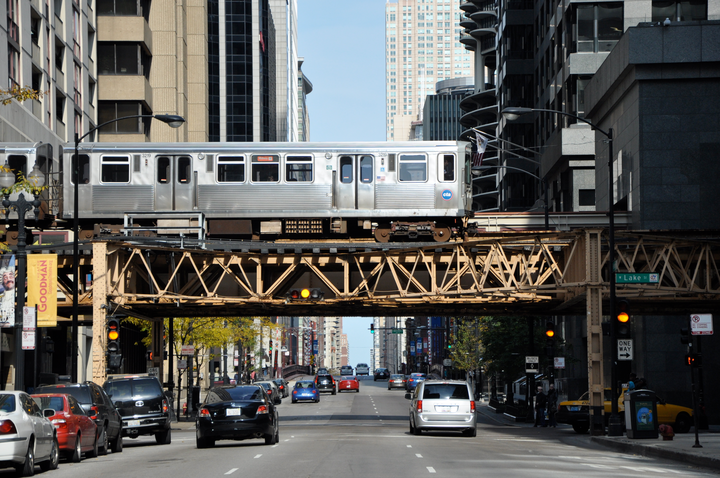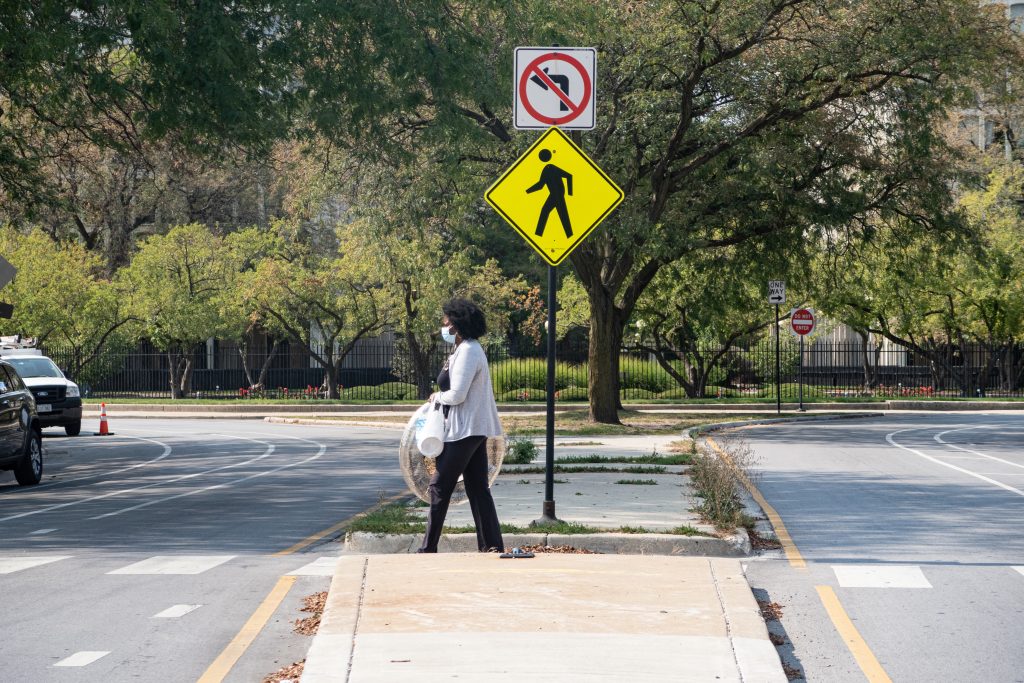Did You Know?
Top 10 walking, biking, and transit stories of 2024

2024 has been a landmark year for advocates of sustainable mobility in our region.
In Chicago, we’ve witnessed more people biking while also seeing a notable decrease in pedestrian and cyclist fatalities and injuries.
Additionally, the Chicago Transit Authority (CTA) has successfully restored its service to pre-pandemic levels.
Other initiatives, while still in progress, are gaining momentum. The ongoing efforts to reduce Chicago’s speed limit are showing promise, with increased political will.
These developments, both completed and in-progress, are paving the way for a more sustainable, safe, and efficient transportation environment.
Kudos to all the advocates who flexed their collective muscles and made walking, biking, and transit a key issue throughout the year.
We showed up at public meetings, hearings, open houses, workshops, and, yes, on Zoom, to fight for our shared vision of safe streets for all. To all of you supporters, thanks for being a part this crucial movement to build a better world.
Here’s a rundown of some of the most important developments in the past year.
1. SUPPORT GROWING FOR BETTER REGIONAL TRANSIT
The need to avert our impending transit funding crisis continues to loom large.
In response to this urgent moment, our coalition has been meeting with lawmakers and constituents, gathering support to streamline these four agencies into one cohesive entity.
Along with the governance change, we’ve been slowly building support for funding that will not only prevent drastic cuts in our transit, but also improve service throughout the region.
2. LOWERING CHICAGO’S DEFAULT SPEED LIMIT
We’re thrilled that the proposed ordinance to reduce Chicago’s default speed limit successfully advanced through the Chicago City Council’s Committee on Pedestrian and Traffic Safety.
As shown in other cities around the nation, lowering the speed limit is a critical part of a broader strategy to decrease traffic fatalities and build safer neighborhoods throughout Chicago.
While we expect a vote from city council early in 2015, it’s not a done deal at all.
While we have already connected more than 1,000 supporters to members of city council on this issue, there is still more work to do.
3. CTA RETURNS TO PRE-PANDEMIC SERVICE LEVELS
Kudos to CTA for returning to pre-pandemic rail and bus service levels. Restoring bus and train service to pre-pandemic levels is a significant milestone in Chicago’s public transportation recovery.

4. IDOT FALLS SHORT WITH ITS VISION FOR NDLSD
A strong coalition of lawmakers and advocates made their voices heard about the Illinois Department of Transportation’s failure to incorporate community interests into its plans for North DuSable Lake Shore Drive.
While IDOT is apparently sticking to its decision to not include dedicated lanes for transit in its plan for rebuilding the roadway, the coalition was successful in getting the attention of agency officials and local media.
5. CHICAGO’S GREYHOUND STATION HANGS IN THE BALANCE
This fall, Chicago’s Greyhound station was on the brink of closure. Thanks to the efforts of advocates and elected officials, the threat of the bus terminal shutting its doors ended with a temporary reprieve that will keep the downtown terminal operating longer.
While the long-term future of an enclosed intercity bus terminal in Chicago remains uncertain, many have been speaking out about the need for the city to take ownership of the facility.
6. PLOW THE SIDEWALKS PILOT PROGRAM MOVES FORWARD
In May, city officials unveiled recommendations for a Plow the Sidewalks Pilot Program. The recommendations outline strategies for implementing sidewalk snow removal as a municipal service.
While the pilot initiative was only partially funded by the 2025 city budget, the program represents a significant shift in Chicago’s approach to winter sidewalk maintenance, addressing longstanding concerns about inconsistent snow clearance across the city. We hope to see forward momentum continue with this initiative.
7. SAFE TRAVEL FOR ALL PICKS UP STEAM
Safe Travel for All is an initiative aimed at eliminating traffic fatalities and serious injuries across northeastern Illinois. As part of this effort, each county is developing a tailored safety action plans that align with a regional strategy, ensuring coordinated improvements.
The Chicago Metropolitan Agency for Planning (CMAP), the Illinois Department of Transportation, and six counties—Cook, DuPage, Kane, Lake, McHenry, and Will—are collaborating to create this groundbreaking traffic safety framework.

8. SAFETY INFRASTRUCTURE — AND ADVOCACY — PAYS OFF
In 2024 we learned that Chicago’s recent investments in traffic safety infrastructure have paid off significantly.
The city saw a 27% decrease in traffic fatalities in 2023 compared to 2021, following the implementation of extensive safety measures. These improvements, including over 50 miles of low-stress bikeways, led to a notable reduction in cyclist fatalities.
Simultaneously, Chicago experienced a remarkable 119% increase in bicycling over the past four years, outpacing other major U.S. cities.
These developments clearly demonstrate that investments in safety infrastructure, coupled with strong advocacy efforts, can lead to significant improvements in urban cycling and overall traffic safety.
9. RED LINE EXTENSION GETS CLOSER TO FULL FUNDING
After decades of anticipation, the CTA Red Line Extension (RLE) project is set to receive a nearly $2 billion injection of federal funding. In addition to the federal grants, the rest of the funding is set to come from a mix of state and local funding.
The RLE will be a 5.6-mile expansion of CTA’s Red Line from 95th Street to 130th Street on Chicago’s Far South Side.
10. SMART STREETS PILOT PROGRAM
2024 marked the beginning of a new pilot program targeted at preventing drivers from parking in bus and bikes lanes in Chicago’s central business district.
We can’t wait to see how this automated ticketing program will help enhance bike lane safety, shorten transit trips, and make it easier for passengers with disabilities to board buses.
With support from people like you, Active Transportation Alliance works to improve our options for walking, biking, and transit. You can be part of the movement by joining Active Transportation Alliance, renewing your membership, or donating today.
Make a Donation
Your tax-deductible donation supports the important work that Active Trans does throughout the region
